SICE 2020 in Chiang Mai to be held ONLINE. Please see the
announcement.
Special Panel Session:
International Symposium on Safety and Secure Control System
Session Organizers
- Akio Ito (Yokogawa Electric Corporation)
- Hiroo Kanamaru (Mitsubishi Electric Corporation)
- Tsutomu Yamada (Hitachi , Ltd.)
- Yoichi Takayanagi (Toshiba Infrastructure Systems & Solutions Corporation)
Description
Technical Committee on Industrial Networks and System” and “Committee on International Standardization” plan Special Panel Session on Safety and Secure Control System for realizing Smart Manufacturing. Recently, “Smart Manufacturing”, (e.g. Indutrie4.0, Industrial Internet Consortium, Society5.0, Connected Industries, Thailand 4.0) discussion is widely conducted. “Safety and Secure Control System” is important for realizing “Smart Manufacturing”. Organizers plan JEMIMA sponsored plenary talk and relating two organized sessions, which handle various themes of “Smart Manufacturing” and “Safety and Secure Control System”. This special session is held to follow up, drill deep into and expand plenary talk and relating two organized session themes in collaboration with international guest speakers.
Anyone is encouraged to participate these sessions. Participants will argue fruitful discussion, create friendship relation and obtain expertise through on-going activities regarding latest trend of Safety and Secure Control System for realizing Smart Manufacturing.
Chairs
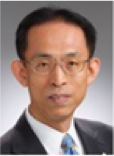
Mr. Akio Ito (Yokogawa Electric Corporation, Japan/ FDT Group, Belgium/ Industrial Open-Network Laboratory in Waseda University, Japan)
Mr. Akio Ito (Yokogawa Electric Corporation, Japan /FDT Group, Belgium /Industrial Open-Network Laboratory in Waseda University, Japan)
He is an expert of field device management. He is a former chair of Technical Division on Industrial Applications of SICE.
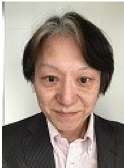
Mr. Hiroo Kanamaru (Mitsubishi Electric Corp, Japan)
He has long experiences regarding safety and security in industrial automation, and an expert of IEC 61508, IEC 62443, and IEC TR 63069: Framework to bridge the requirements for safety and security. He is a president of ISA Japan section.
Panelists
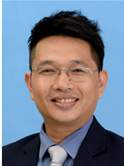
Dr. Diew Koolpiruck (King Mongkuts’ University of Technology Thonburi, Thailand)
He has many experiences in the design and implementation of digital factory in Thailand. A cybersecurity is one of major issues in the digital factory design. He also has researches in CPS for digital and intelligent manufacturing.
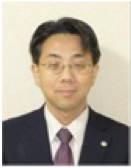
Mr. Tsutomu Yamada (Hitachi, Ltd., Japan)
He has long experiences in R&D of embedded computer architecture and cyber security, and introducing security measures for industrial control systems (ICSs). He is an expert of IEC/TC65/WG10 and IECEE/CMC/WG31 (ICS security certification).
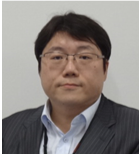
Mr. Youichi Takayanagi (Toshiba Infrastructure Systems & Solutions Corporation, Japan)
He is an expert of industrial network and related equipment and instrument. He is a former chair of Technical Division on Industrial Applications of SICE.
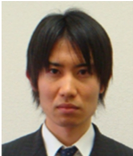
Mr. Junya Fujita (Hitachi, Ltd., Japan)
He has experiences in R&D related to embedded systems and cybersecurity for industrial automation control applications. He is a member of ISA99 workgroup and the Japanese national committee for IEC/TC65/WG10 (Responsible for ISA/IEC 62443 development)

Mr. Andrew Jamieson (UL LLC, Australia)
Andrew Jamieson has over 25 years of experience in working with payment systems and emerging technologies. Before working with Underwriters Laboratories, Andrew has worked for a number of different companies creating new technologies in the areas of payment systems, and consumer products. In this capacity, Andrew has written a number of payments and security based patents, which have been granted around the world as well as creating or assisting with the formalisation of security testing standards. Andrew has direct experience with most of the PCI standards (PTS, DSS, PA DSS, P2PE, and PIN), as well as security and functional aspects of mobile Issuance (HCE), ATMs, Internet of Things (IoT) devices, mPOS, EMV, and cryptography / PKI. He wrote the IoT Top 20 Security Design Principles and created the IoT Security Rating program for UL. Andrew has a B.Eng (EE with honours), M.Sc (InfoSec), and is a Distinguished Member of Technical Staff within UL.
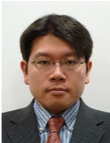
Dr. Kenji Sawada (University of Electro-Communications, Japan)
He is an expert of control theory of cyber-physical system and control system security. He is also an advisor of Control System Security Center since 2016.
Program
Fri, 25th Sept, 2020 11:00-12:30(TST), 13:00-14:30(JST)
11:00-11:05(TST)
13:00-13:05(JST) ![]() |
Session introduction (Chair: Akio. Ito and H. Kanamaru) |
11:05-11:15(TST)
13:05-13:15(JST) |
Talk 1: Current topics in Thailand
Speaker: Dr. Diew Koolpiruck (King Mongkuts’ University of Technology Thonburi, Thailand)
Outline: Safety and security current topics in Thailand will be introduced as a Thai expert of cyber security in industrial automation control systems. In Thailand, Safety system is generally implemented by engineering department with various spectrums of technologies. For the secure control system, therefore lack of awareness and skills in cyber security, IT department usually manage the cyber security in both IT and automation. In order to achieve a good performance of secure control system, the roles of IT and engineering department must be clarified with proper selected international standards in each level. In addition, human resource development in both safety and security for automation are also required. |
11:15-11:25(TST)
13:15-13:25(JST) |
Talk 2: Current topics in Japan
Speaker: Mr. Tsutomu Yamada (Hitachi, Ltd. , Japan)
Outline: From around 2010, cyber-attacks on social infrastructure systems and industrial automation and control systems have becomes a reality. Recently, there have been reported a ransomware that keeps files on PC in a production system as hostages and a malware that rewrites basic software of SIS. Based on the status of these threats to control systems, SICE “Technical Committee on Industrial Networks and System” had a panel discussion with end user and issued an article in SICE Magazine [1] on Japanese plant end user current situation. Safety and security current topics in Japan based on this article will be presented.
[1] A.Yokoi et al., “End user’s facing current status and challenges for cyber security counter measure, from process automation plant floor”, Measurement and Control, SICE Vol.58, No.12, 2019 (In Japanese) |
11:25-11:30(TST)
13:25-13:30(JST) |
Talk 3: Counter measures of components
Speaker: Mr. Youichi Takayanagi (Toshiba Infrastructure Systems & S olutions Corporation, Japan)
Outline: If there is a vulnerability in the control component, the cyber threat attacks via the vulnerability. Therefore, each control component must have measures against cyber attacks and appropriate security assurance. In this section, examples of security measures of an industrial computer will be presented. |
11:30-11:35(TST)
13:30-13:35(JST) |
Talk 4: International standards
Speaker: Mr. Junya Fujita (Hitachi, Ltd. , Japan)
Outline: Technical standards for IACS security are discussed and published in ISA / IEC 62443. Currently, it is the only security standard for embedded systems and control systems; terms and concepts, a process of risk analysis, countermeasures, managements, security levels, etc. Here, the outline of ISA / IEC 62443 and the status of standardization will be introduced. |
11:35-11:40(TST)
13:35-13:40(JST) |
Talk 5: Conformity assessment
Speaker: Mr. Andrew Jamieson (UL LLC, Australia)
Outline: Assurance of the security performance of the control system or its components is a concern of the user of the system. In particular, when objectivity is required, it is important for the third parties to assess the conformity to security standards. Now, governments of each country are considering using the security certification system in the security legal system. In this section, the situation of this certification system will be presented. |
11:40-11:45(TST)
13:40-13:45(JST) |
Talk 6 : Education and training
Speaker: Dr. Kenji Sawada (University of Electro-Communications, Japan)
Outline: For security measures, human resources who can understand these technologies and build systems are indispensable. Not only security related knowledge, but also understanding and experience of control systems and smart manufacturing are required. In order to develop such multi-role human resources, educational institutions have prepared curricula. Here are some examples from universities. |
11:45-12:25(TST)
13:45-14:25(JST) |
Debate by panelist & audience |
12:25-12:30(TST)
14:25-14:30(JST) |
Closing announce |